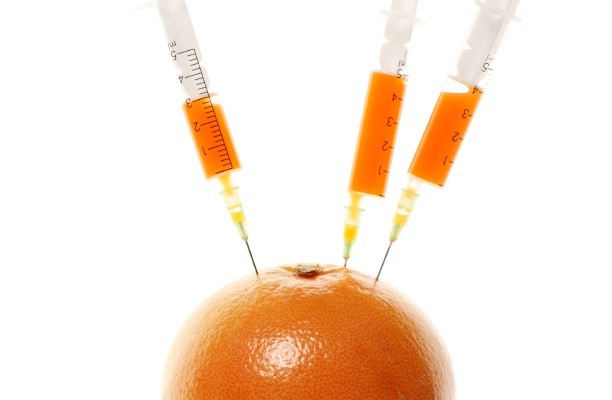
When is high dose IV Vitamin C indicated?
High dose intravenous Vitamin C has gained a lot of attention in the media lately as an anti-cancer therapy. There is no doubt that when used appropriately this can be an effective integrative cancer therapy1. As the evidence mounts, mainstream medicine is slowly beginning to embrace high dose IV Vitamin C.
Oncologists will frequently tell their patients to fear antioxidants because they will neutralize the effects of the chemotherapy. The rationale is that chemotherapy works by adding oxidative stress to cancer cells and antioxidants will neutralize this effect. On an intuitive level this makes sense but the majority of the scientific evidence indicates that when used appropriately antioxidants protect healthy cells without interfering with the effects of the chemotherapy2,3.
It is important to point out that Vitamin C is not an antioxidant when given at high doses intravenously4. When taken orally at low doses Vitamin C is an effective antioxidant and it has many positive benefits. At high doses Vitamin C switches roles and acts as a potent oxidative molecule, which is the complete opposite of its antioxidant role at lower doses. Studies show that at high doses Vitamin C is very toxic to cancer cells6. In this cellular context it is a potent oxidative molecule that works synergistically with most conventional therapies.
Patients who undergo this therapy tend to experience less significant side effects from the chemotherapy7,8. IV Vitamin C can vastly improve quality of life by increasing appetite, raising platelet counts, easing fatigue and reducing pain. When patients are supported by the appropriate nutrients and supplements, the side effects from chemotherapy are less intense. Studies consistently show that at these high doses, Vitamin C is toxic to cancer cells while protecting healthy cells from the effects of chemotherapy. The evidence indicates that IV Vitamin C is effective when used in conjunction with chemotherapy rather than as a stand alone therapy.
There are several different situations where high dose IV Vitamin C is not safe. Although it is safe to use with most chemotherapies, it is not safe to use with Velcade (Bortezomib)5. There are a number of studies that show a negative interaction between this particular drug and Vitamin C. When injecting Vitamin C there is a significant amount of sodium that is in the infusion and this can add a significant burden to the kidneys. This stress to the kidneys is only a concern in patients that have significantly compromised kidney function. There is also a rare genetic condition known as G6PD and in these patients it is not safe to give them high doses of Vitamin C. You need an experienced health care professional to assess your health history and ensure that you do not have any contraindications to this therapy.
I regularly run IV Vitamin C on my patients at the clinic and it is a very effective cancer therapy when used appropriately. On a regular basis I see patients improve significantly when they use this therapy as part of a comprehensive integrative cancer therapy. Contact Yaletown Naturopathic Clinic to see if this is the right therapy for you.
Dr. Adam McLeod is a Naturopathic Doctor (ND), BSc. (Hon) Molecular biology, First Nations Healer, Motivational Speaker and International Best Selling Author. He currently practices at his clinic in Vancouver, British Columbia where he focuses on integrative cancer therapies. https://www.yaletownnaturopathic.com
References:
1) Vollbracht, Claudia, et al. “Intravenous vitamin C administration improves quality of life in breast cancer patients during chemo-/radiotherapy and aftercare: results of a retrospective, multicentre, epidemiological cohort study in Germany.” in vivo 25.6 (2011): 983-990.
2) Suhail, N., et al. “Effect of vitamins C and E on antioxidant status of breast‐cancer patients undergoing chemotherapy.” Journal of clinical pharmacy and therapeutics 37.1 (2012): 22-26.
3) Tabassum, A., R. G. Bristow, and V. Venkateswaran. “Ingestion of selenium and other antioxidants during prostate cancer radiotherapy: a good thing?.” Cancer treatment reviews 36.3 (2010): 230-234.
4) Carr, Anitra, and Balz Frei. “Does vitamin C act as a pro-oxidant under physiological conditions?.” The FASEB Journal 13.9 (1999): 1007-1024.
5) Perrone, G., et al. “Ascorbic acid inhibits antitumor activity of bortezomib in vivo.” Leukemia 23.9 (2009): 1679-1686.
6) Riordan, N. H., et al. “Intravenous ascorbate as a tumor cytotoxic chemotherapeutic agent.” Medical hypotheses 44.3 (1995): 207-213.
7) Weijl, N. I., et al. “Supplementation with antioxidant micronutrients and chemotherapy-induced toxicity in cancer patients treated with cisplatin-based chemotherapy: a randomised, double-blind, placebo-controlled study.” European Journal of Cancer 40.11 (2004): 1713-1723.
8) Takemura, Yukitoshi, et al. “High dose of ascorbic acid induces cell death in mesothelioma cells.” Biochemical and biophysical research communications 394.2 (2010): 249-253.






Leave a Reply
You must be logged in to post a comment.